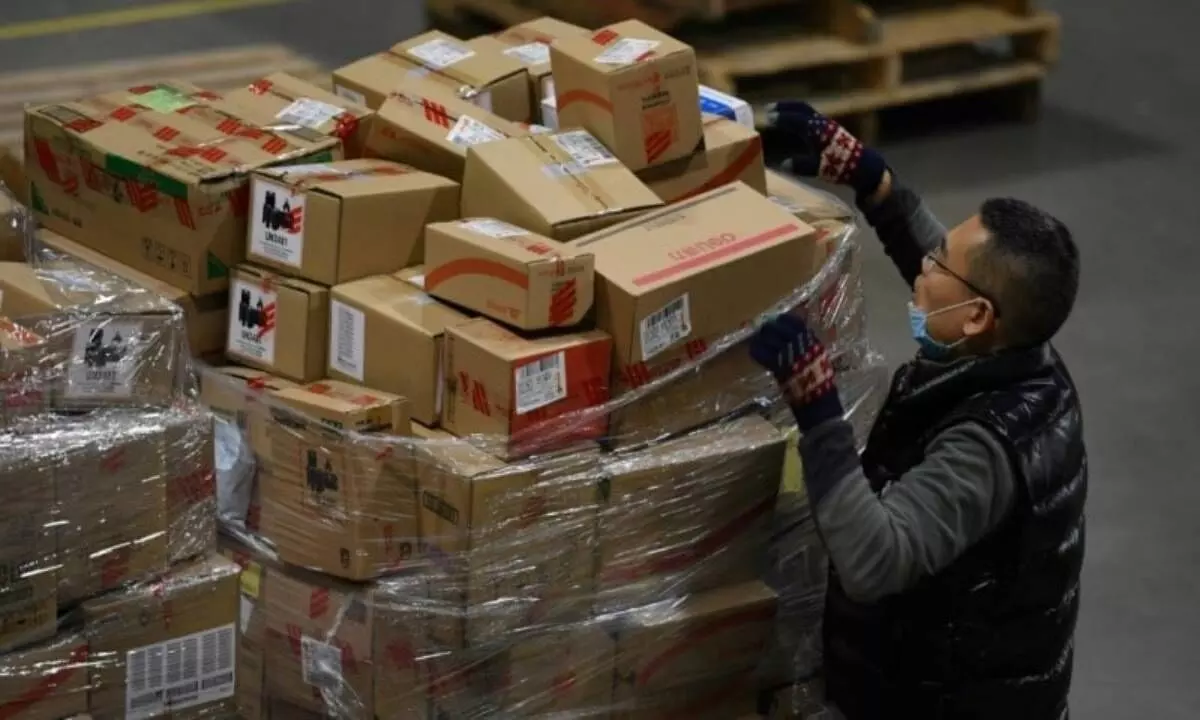Are Chinese shoppers about to embark on another wave of revenge spending?
As China moves away from its long-held Zero-Covid approach, the luxury industry (and its investors) hopes the country’s reopening will make up for a sputtering US, which has been the engine of high-end growth for the past two years. But the path to easing is likely to be volatile, both in pace and subsequent Covid spikes, so there are reasons to be cautious.
image for illustrative purpose

As China moves away from its long-held Zero-Covid approach, the luxury industry (and its investors) hopes the country's reopening will make up for a sputtering US, which has been the engine of high-end growth for the past two years. But the path to easing is likely to be volatile, both in pace and subsequent Covid spikes, so there are reasons to be cautious.
Since the devastation of the earliest outbreaks, which saw stores close across China and the US, sellers of luxury goods have enjoyed a remarkable recovery. This was initially driven by China's first reopening in 2020, but it passed the bling baton to the US in 2021. As China experienced renewed Covid waves and subsequent lockdowns, American shoppers kept snapping up Hermes bags and Rolex watches at home and then in Europe once travel resumed and the dollar surged.
Citigroup Inc. has been tracking US luxury spending at home and abroad through its 15 million active credit-card accounts. In November, ahead of the crucial holiday shopping season, total US luxury spending was down by double-digits for the first time this year compared with 2021, slipping 11 percent.
The deceleration in spending since it peaked in February was initially driven by a slowdown in the number of transactions, as some younger, more marginal buyers reined in their purchases. But over the past few months, Citi has seen a deterioration in the growth of how much is being spent each time too, indicating that even wealthier customers, faced with price hikes at their favourite brands, may be trading down.
But Big Bling's fortunes are inextricably linked to China, whose shoppers are estimated to have accounted for 17-19 percent of global spending in 2022, according to Bain & Co. Chinese officials have begun dismantling the strict pandemic control system of lockdowns, mass testing, state quarantines and electronic contact tracing. Now luxury needs a full and sustained reopening.
Indeed, Bain's more optimistic forecast for luxury sales growth of 6-8 percent year on year in 2023 excluding currency movements, assumes that mainland China fully recovers by the middle of the year, while demand in Europe and North America holds up. Even in these rosy circumstances, top-end sales growth next year would be around half of the expected out-turn for 2022.
Although Beijing's volte face from Zero-Covid has been rapid, the actual process of reopening is still at a relatively early stage. It'll be worth watching how bad the current surge in Covid cases gets — and whether this derails the newfound freedoms. Either way, we're looking at a volatile next few months.
Although some shoppers may spend with abandon, others may be more reluctant to splurge. After all, 2020 turned out to be a false dawn. It was followed by rolling restrictions, which sapped enthusiasm.
What's more, people tend to splash most on high-end goods when they feel confident and wealthy. Given the recent protests against the Zero-Covid policy and weakness in the housing market — the main store of wealth in the country — such sentiment can't be counted on to carry luxury goods sales higher. The spike in Covid cases only adds to the unease.
Consequently, Bain's more pessimistic scenario, of a sluggish China plus a slowdown in Europe and the US, is for growth of just 3-5 percent in luxury sales next year compared with 2022.
Against this more uncertain backdrop, Hermes International looks best placed. Waiting lists for its iconic bags, such as the Kelly, provide some resilience against leaner times. And it would be one of the main beneficiaries of China's reopening given its brand desirability there.
LVMH Moet Hennessy Louis Vuitton SE, the world's biggest luxury group, should also prosper given that it has the scale and resources to keep its brands, led by Louis Vuitton and Dior, at the forefront of consumers' minds. The conglomerate controlled by Bernard Arnault, who recently passed Elon Musk to become the world's richest man, also has some handy diversification, in the form of wines, spirits and beauty.
The environment is more challenging for companies engaging in turnarounds, such as Britain's Burberry Group Plc, which has high exposure to China but is about to begin relaunching under a new designer.
Although Kering SA is one of the luxury leaders, it is currently trying to reposition its Gucci brand while its Balenciaga house has been embroiled in controversy after a promotional campaign drew criticism that it sexualised children.
But if brands can navigate the unpredictability of the next few months, they may enjoy a more stable second half of next year. Even a modest uplift in Chinese travelling and buying would boost revenue. Meanwhile, the latter part of the year will compare with the period in 2022 when American luxury shoppers started cutting back.
But it is 2024 that holds the real prize for the bling behemoths: The prospect of Chinese consumers travelling outside of their domestic market again. That's when the revenge spending could finally begin.

